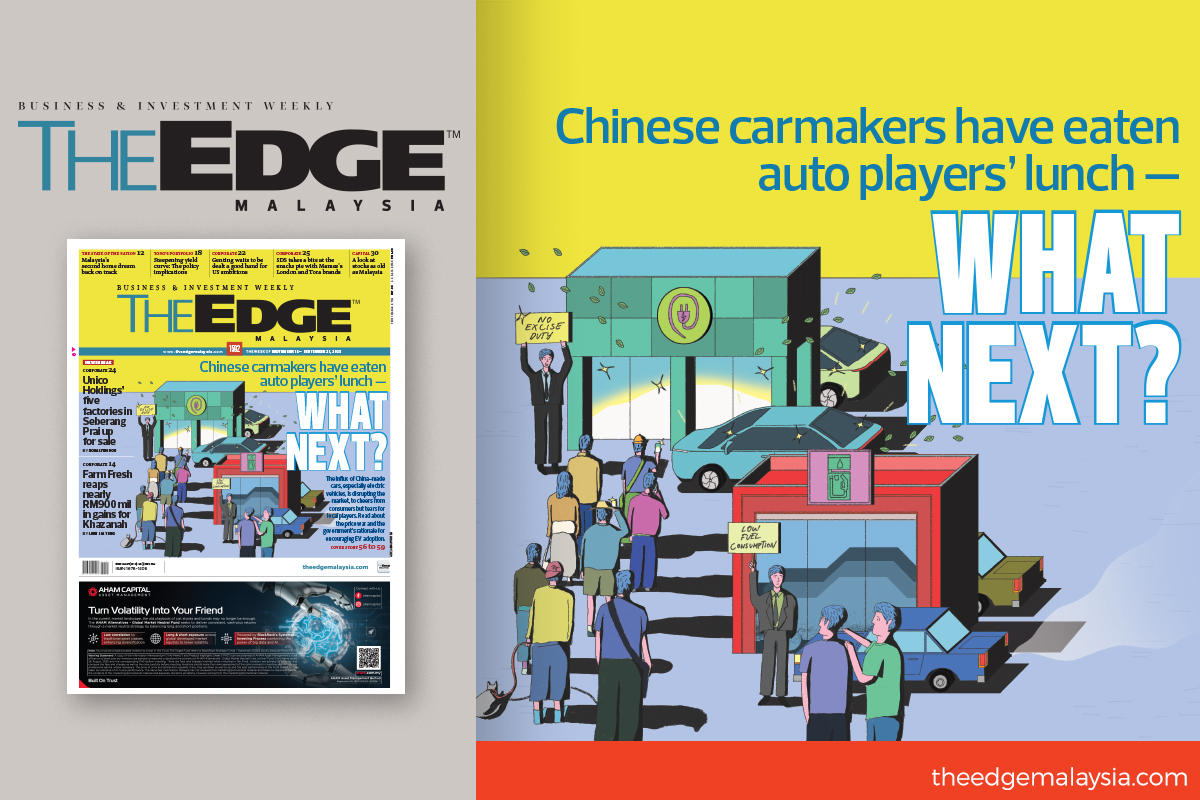KUALA LUMPUR (Sept 13): The local automotive sector is currently experiencing a wind of change, as Chinese automakers are taking the market by storm with competitively priced electric vehicles (EVs) and internal combustion engine (ICE) vehicles.
Notably, to encourage adoption of EVs, tax exemptions have been given on imported EVs between 2022 and 2025 and until the end of 2027 for locally assembled, “completely knocked down” or CKD units.
These factors have impacted established Japanese and European brands, which are slowly losing market share.
In response, some established players are adapting by forming partnerships with Chinese automakers, while local carmakers such as Perodua and Proton are investing in developing their own EVs to defend their market share.
Perodua, supported by its technical partnership with Daihatsu, is preparing to launch an affordable EV model by the end of 2025, with the aim of keeping its dominant position. Proton, backed by China-based Geely, continues to capitalise on its successful EV line-up, and emerged as the bestselling EV this year.
This disruption mirrors broader trends across Southeast Asia with Chinese automakers gaining traction. Nevertheless, countries like Thailand and Indonesia are already seeing a decline in new car sales as consumer sentiment is affected by the ongoing price war.
Back at home, the Malaysian automotive industry is starting to feel the heat from intense disruption from Chinese competitors and regional economic challenges, with some of the established players listed on Bursa Malaysia showing sharp declines in their profitability and having their share prices battered in less than 12 months.
Nevertheless, without the tax exemptions, EVs will not be competitive in Malaysia, due to the high excise duty imposed on imported cars. If the policy is not extended or lifted gradually, it could result in a shock to the market.
Additionally, the removal of the RM100,000 minimum pricing threshold for imported completely built-up (CBU) EVs at the end of 2025, combined with potential revisions to excise duties on locally assembled CKD cars, could put more pressure on established players.
It looks like the automotive industry is approaching a critical inflection point and could see a more challenging year in 2026.
Read the story in this issue of The Edge Malaysia weekly.
Save by subscribing to us for
your print and/or
digital copy.

